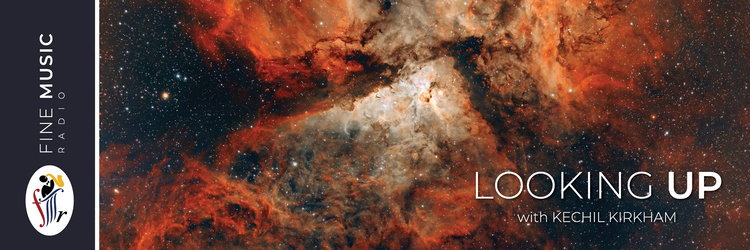
Looking Up
Five minutes at the end of each week explores the big and the small questions in astronomy, cosmology, and space science. Hosted by Kechil Kirkham, no subject is too big or too small, and experts are regularly brought on board to illuminate and excite. Cape Town is the place to be for astronomy, with some of the largest telescopes in the world housed or being built not too far away. Looking Up takes advantage of the shoals of scientists and engineers working on the planet’s most advanced astronomy projects, who live and work right here in the Mother City. Kechil has recently acquired an MPhil in Space Studies at the University of Cape Town, and works in South Africa’s space industry on the Square Kilometre Array radio telescope.





















